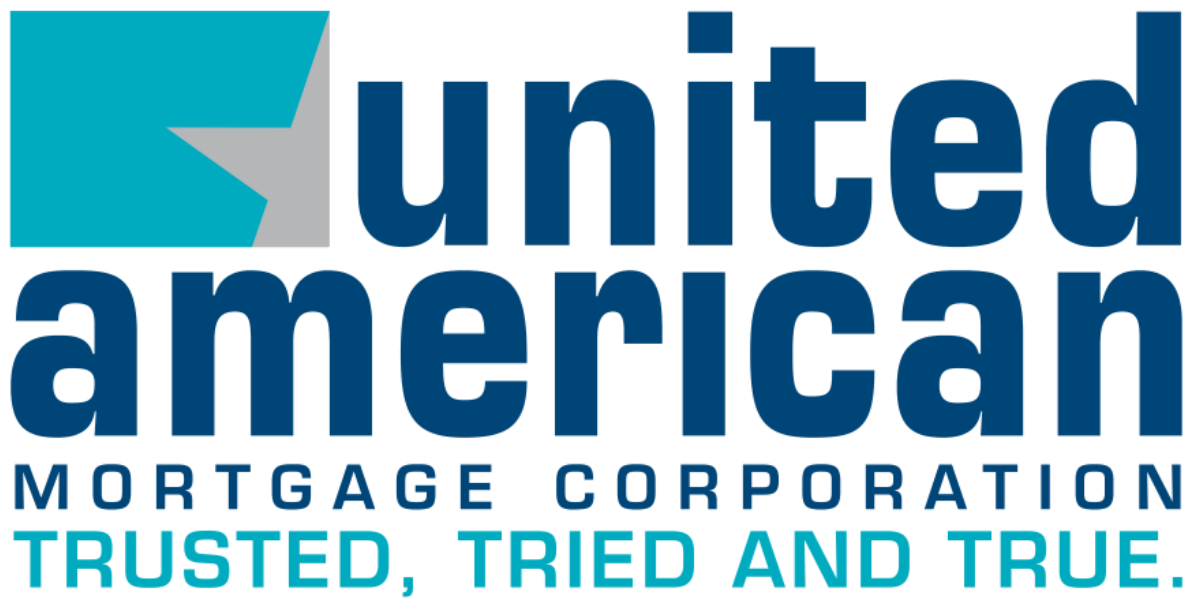Non-Warrantable Condo Financing
Non-Warrantable Condo Financing: A Game-Changing Solution for Homebuyers
 Are you a homebuyer looking to purchase a condominium? If so, you may have come across a hurdle known as non-warrantable condo financing. But fear not! This page from Scott English will introduce you to a game-changing solution that can help you secure financing for a non-warrantable condo.
Are you a homebuyer looking to purchase a condominium? If so, you may have come across a hurdle known as non-warrantable condo financing. But fear not! This page from Scott English will introduce you to a game-changing solution that can help you secure financing for a non-warrantable condo.
Non-warrantable condos are properties that do not meet the strict guidelines set by Fannie Mae and Freddie Mac. This means that traditional lenders often shy away from offering loans for these types of properties. However, there are alternative financing options available that can provide you with the funds you need to purchase your dream condo.
In this article, we’ll dive into the details of non-warrantable condo financing and how it can benefit homebuyers like you. We’ll explore the criteria that determine whether a condo is considered non-warrantable, explain the challenges that come with this type of financing, and highlight the innovative solutions that are now available in the market.
Say goodbye to long and complicated loan processes, and say hello to a simpler and more accessible path to condo ownership. Let us guide you through the game-changing solution of non-warrantable condo financing.
What is a non-warrantable condo?
A non-warrantable condo is a type of property that does not meet the strict guidelines set by Fannie Mae and Freddie Mac. These guidelines are in place to ensure that lenders can easily sell the loans they originate on the secondary market. Traditional lenders often shy away from offering loans for non-warrantable condos because they are considered higher risk.
There are several reasons why a condo may be classified as non-warrantable. It could be due to the ratio of owner-occupied units to investor-owned units, pending litigation involving the condo association, or the lack of a sufficient budget for reserves. These factors make it challenging for traditional lenders to provide financing for these properties.
Speedy Quote
Take the first step to getting the best home loan for you.
Challenges of financing a non-warrantable condo
One of the main challenges of financing a non-warrantable condo is the limited options available to homebuyers. Traditional lenders typically require condos to meet specific criteria in order to qualify for financing. When a condo does not meet these criteria, it can be difficult to find a lender willing to provide a loan.
Another challenge is the additional documentation and paperwork that may be required for non-warrantable condo financing. Lenders may request more detailed information about the condo association, including financial statements, insurance coverage, and any pending litigation. This can prolong the loan process and create additional hurdles for homebuyers.
Additionally, non-warrantable condo financing often comes with higher interest rates and stricter lending terms. Lenders perceive these properties as higher risk, which leads to increased costs for borrowers. Homebuyers need to be prepared for these potential challenges and factor them into their decision-making process.
Benefits of non-warrantable condo financing
Despite the challenges, there are several benefits to non-warrantable condo financing that make it an attractive option for homebuyers. One of the main advantages is the ability to purchase a condo that may not be eligible for traditional financing. This opens up a wider range of options for homebuyers, allowing them to consider condos that meet their needs and preferences.
Non-warrantable condo financing also provides flexibility in terms of loan amounts and borrower qualifications. Traditional lenders have strict guidelines when it comes to loan-to-value ratios and credit scores. However, alternative financing options for non-warrantable condos may have more lenient requirements, making it easier for homebuyers to qualify for a loan.
Another benefit is the potential for faster approval and closing times. Traditional lenders often have lengthy approval processes, which can delay the purchase of a condo. Alternative financing options may have streamlined processes, allowing homebuyers to move forward with their purchase more quickly.
Eligibility requirements for non-warrantable condo financing
While non-warrantable condo financing offers more flexibility than traditional options, there are still eligibility requirements that need to be met. These requirements may vary depending on the lender, but some common criteria include:
- Minimum credit score: Lenders may require a minimum credit score to qualify for non-warrantable condo financing. This score is typically higher than what is required for traditional financing.
- Debt-to-income ratio: Lenders will evaluate your debt-to-income ratio to determine if you have the financial capacity to repay the loan. This ratio compares your monthly debt payments to your monthly income.
- Down payment: Non-warrantable condo financing may require a larger down payment compared to traditional financing. Lenders may require a down payment of 20% or more to mitigate the higher risk associated with these properties.
- Condo association requirements: Lenders will review the condo association’s financial health, insurance coverage, and any pending litigation. They may also consider the ratio of owner-occupied units to investor-owned units.
It’s important to note that these eligibility requirements may vary depending on the lender and the specific circumstances of the condo. Working with a knowledgeable mortgage professional can help you navigate these requirements and find the best financing option for your needs.
The non-warrantable condo financing process
The process of obtaining non-warrantable condo financing is similar to traditional financing, but with some additional steps. Here is a general overview of the process:
- Pre-approval: Start by getting pre-approved for a loan. This will give you an idea of how much you can afford and strengthen your position when making an offer on a condo.
- Condo review: Once you find a non-warrantable condo you’re interested in, your lender will review the condo association’s financials, insurance coverage, and any pending litigation. This step is crucial to ensure the property meets the lender’s requirements.
- Loan application: Complete a loan application and submit the necessary documentation to your lender. This may include income verification, bank statements, and tax returns.
- Underwriting: The lender will review your application and documentation to assess your eligibility and the risk associated with the loan. They may request additional information or clarification during this process.
- Appraisal: An appraisal will be conducted to determine the value of the condo. This is important for the lender to ensure they are not financing more than the property is worth.
- Loan approval and closing: Once your loan is approved, you will proceed to the closing stage. This involves signing the necessary documents and paying any closing costs or fees.
- Funding and ownership transfer: After closing, the lender will fund the loan, and ownership of the condo will be transferred to you. Congratulations, you’re now a condo owner!
Tips for finding a lender for non-warrantable condo financing
Finding a lender that offers non-warrantable condo financing can be challenging, but not impossible. Here are some tips to help you in your search:
- Work with a mortgage professional: A mortgage professional who specializes in non-warrantable condo financing can guide you through the process and connect you with lenders who offer these types of loans. Their expertise can be invaluable in navigating the complexities of this financing option.
- Research alternative lenders: Traditional lenders may not offer non-warrantable condo financing, so it’s important to explore alternative options. Look for lenders who specialize in non-warrantable condo loans or have experience working with these types of properties.
- Consider online lenders: Online lenders have gained popularity in recent years and may offer more flexibility when it comes to non-warrantable condo financing. Take the time to research and compare online lenders to find the best fit for your needs.
- Ask for recommendations: Reach out to friends, family, or real estate professionals who have experience with non-warrantable condo financing. They may be able to recommend lenders or provide insights based on their own experiences.
Remember, it’s crucial to do your due diligence and carefully review the terms and conditions of any loan offers you receive. Compare rates, fees, and repayment terms to ensure you’re making an informed decision.
Common misconceptions about non-warrantable condo financing
There are several misconceptions surrounding non-warrantable condo financing that can deter homebuyers from considering this option. Let’s address some of the most common misconceptions:
- Non-warrantable condos are undesirable: While non-warrantable condos may not meet the strict guidelines set by Fannie Mae and Freddie Mac, it does not mean they are undesirable. These condos can offer unique features, locations, and amenities that traditional condos do not have.
- Non-warrantable condo financing is too risky: While non-warrantable condo financing may be considered higher risk compared to traditional financing, it does not mean it’s inherently risky. By carefully reviewing the condo association’s financials and working with a reputable lender, you can mitigate the risks associated with this type of financing.
- Non-warrantable condo financing is too complicated: While non-warrantable condo financing may have additional requirements compared to traditional financing, it does not mean it’s overly complicated. Working with a mortgage professional who specializes in this type of financing can simplify the process and guide you every step of the way.
It’s important to separate fact from fiction when considering non-warrantable condo financing. By understanding the realities of this financing option, you can make an informed decision that aligns with your goals and preferences.
Alternative financing options for non-warrantable condos
If you’re unable to secure traditional financing for a non-warrantable condo, there are alternative financing options available. These options cater to borrowers who may not meet the strict guidelines of traditional lenders. Here are a few examples:
- Portfolio lenders: Portfolio lenders are financial institutions that keep the loans they originate on their own books, rather than selling them on the secondary market. This gives them more flexibility in terms of loan criteria and allows them to offer financing for non-warrantable condos.
- Private lenders: Private lenders, also known as hard money lenders, provide loans based on the value of the property rather than the borrower’s creditworthiness. These lenders may be more willing to finance non-warrantable condos, but they often come with higher interest rates and shorter loan terms.
- Credit unions: Some credit unions offer non-warrantable condo financing to their members. Credit unions are member-owned financial institutions that often have more lenient lending criteria compared to traditional banks.
It’s essential to carefully evaluate the terms and conditions of any alternative financing options you consider. While these options may provide a solution for purchasing a non-warrantable condo, they may come with higher costs or stricter repayment terms.
Case studies: Success stories of non-warrantable condo financing
To illustrate the benefits and possibilities of non-warrantable condo financing, let’s look at a few success stories:
- Sarah, a young professional, found her dream condo in a popular urban neighborhood. However, the condo was classified as non-warrantable due to a high percentage of investor-owned units. Sarah worked with a mortgage professional who connected her with a portfolio lender that specializes in non-warrantable condo financing. She was able to secure a loan with favorable terms and purchase her dream condo.
- John and Mary wanted to downsize and move closer to their grandchildren. They found a beautiful condo in a retirement community, but it was classified as non-warrantable due to pending litigation involving the condo association. By working with a mortgage professional experienced in non-warrantable condo financing, they were able to find a lender who understood the unique circumstances of the property and approved their loan.
These case studies highlight the possibilities that non-warrantable condo financing can offer. With the right guidance and lender, homebuyers can overcome the challenges associated with these types of properties and achieve their homeownership goals.
Conclusion: Is non-warrantable condo financing right for you?
Non-warrantable condo financing provides a game-changing solution for homebuyers who are looking to purchase a condo that does not meet the strict guidelines set by Fannie Mae and Freddie Mac. While this type of financing comes with its own set of challenges, it offers several benefits that can make it an attractive option.
If you’re considering purchasing a non-warrantable condo, take the time to assess your eligibility, research lenders who offer this type of financing, and seek guidance from a mortgage professional. By doing so, you can navigate the complexities of non-warrantable condo financing and find a solution that meets your needs.
Say goodbye to long and complicated loan processes, and say hello to a simpler and more accessible path to condo ownership. Non-warrantable condo financing opens up a world of possibilities, allowing you to explore a wider range of condos and make your dream of homeownership a reality.
Contact Scott English today to find the best mortgage options and interest rates available!


